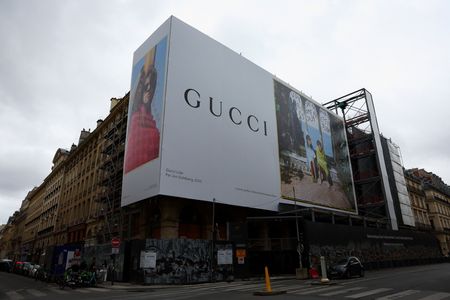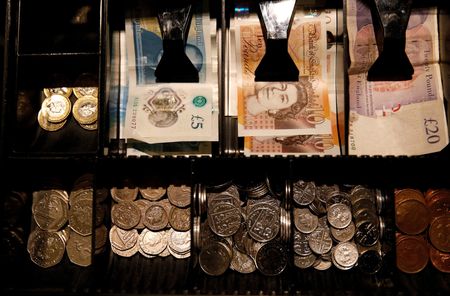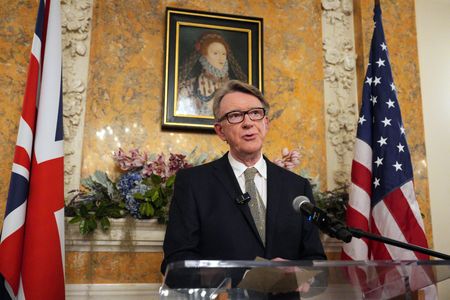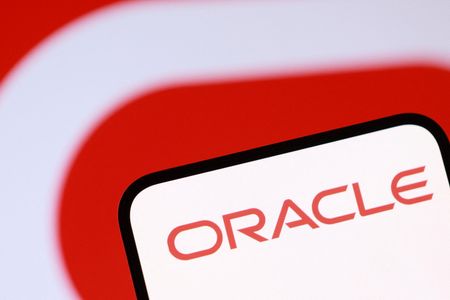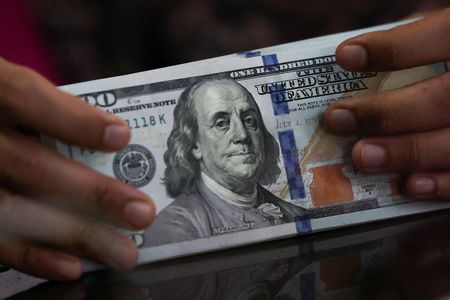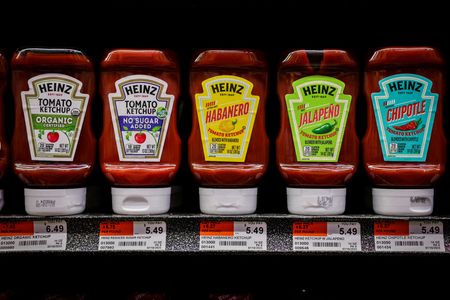By Tassilo Hummel and Elisa Anzolin
PARIS -In trying to reduce Kering’s over-reliance on struggling flagship label Gucci, French billionaire Francois-Henri Pinault has created another problem, as a string of acquisitions piled up debts just as the industry entered a prolonged slump.
Those debts are getting harder to manage, with Kering shares down 60% over the past two years and U.S. President Donald Trump’s tariff threats dashing hopes of a sector rebound, and are weighing on the group as it vies with deep-pocketed rivals.
Pinault’s family holding Artemis, which controls Kering and also has a stake in sports brand Puma, is also heavily indebted, and will likely have to pay back 500 million euros ($567 million) to investors in cash following Thursday’s cut-off date for a convertible bond, after Puma shares underperformed.
Kering may also need to find billions of euros to buy the remaining stake in fashion house Valentino as soon as next year.
The company is cutting costs and selling stakes in properties, but if the debt situation does not improve, it could face a third credit rating downgrade in three years, two Kering bondholders told Reuters, declining to be named.
That could further hamper its ability to revive Gucci and compete with the likes of Hermes, Chanel and LVMH, which have little to no debt and are investing heavily in their brands.
“This is the worst of times, because you’ve got a fall in sales, which is going to translate into a fall in profit, and at the same time, interest rates are rising. So they can’t renegotiate their debt,” said Eric Pichet, economics professor at the Kedge business school in France.
Kering declined to comment for this story.
Pinault, who in 2005 took the helm of the conglomerate founded by his father Francois, enjoyed years of spectacular growth at Kering thanks to Gucci and the “ugly-chic” designs of its former creative director Alessandro Michele.
But as shoppers tired of Michele’s fur-lined loafers after the pandemic, Pinault sought to diversify through acquisitions, including a 30% stake in Valentino, high-end perfume maker Creed, prime real estate, and – via Artemis – a Hollywood talent agency.
The strategy left Kering with net debt of 10.5 billion euros at the end of 2024, up from close to nothing in 2021 and half its market capitalisation, and an even larger debt pile at Artemis, according to the latest available filings.
SHOPPING SPREE
Since the pandemic, Pinault has struggled to choose between bold fashion creations and more classical looks as the best way to revamp Gucci, a person who advised Pinault and other Kering executives during that period told Reuters.
With Kering’s moneyspinner sagging, Pinault moved to snap up perfume maker Creed for 3.5 billion euros and 30% of Valentino for $1.9 billion in 2023, both in cash.
In less than two years, Kering also splashed out roughly 4 billion euros on properties including on New York’s Fifth Avenue, and on prestigious shopping streets in Milan and Paris.
A company insider said Kering paid chunky premiums to outbid rivals, fearing its own labels – which also include Yves Saint Laurent and Balenciaga – could lose access to prime sites.
Kering, whose free cash-flow fell by almost 30% in 2024 to 1.4 billion euros, is now rushing to sell stakes in these buildings, hoping to free up 2 billion euros in cash by 2026, it told analysts in February.
But the stakes may go for less than their book value. Kering recently took a 100-million-euro charge on the sale of a 60% stake in three Paris properties, its 2024 annual report shows.
There are other pressures too.
Kering has said it intends to fully acquire Valentino in 2028 from luxury fund Mayhoola, backed by Qatar’s royal family.
But put options included in the deal might force Kering to buy the remaining 70% stake as soon as May 2026, company filings show. This could add 4 billion euros to Kering’s cash needs, depending on Valentino’s performance.
Kering said in April it was confident cost-cutting measures, including store closures and redundancies, would enable it to fund an early deal, if necessary. Plus it can pay for part of the remaining stake with up to 3 million Kering shares, or 2.4% of its equity.
Mayhoola would welcome a stake in Kering as part of its expansion strategy, a source close to the fund told Reuters.
But this option would only finance a fraction of the overall price tag, based on Kering’s current market value.
DOWNGRADE RISK
Kering’s adjusted net debt, which includes rental lease liabilities, stood at 3.8 times core earnings (EBITDA) at the end of 2024, ratings agency S&P told Reuters, while declining to comment on the timing of any potential ratings review.
UBS analysts estimated in a recent note that Kering’s leverage ratio could reach 4.1 times at the end of 2025. Surpassing four times typically increases the chances of a rating downgrade, one of the bondholders told Reuters.
Replicating the acquisition strategy at his family holding company, 63-year-old Pinault, who is married to Mexican-American actress Salma Hayek, used Artemis to buy a 53% stake in talent agency CAA for 3.5 billion euros, according to Artemis filings.
Artemis’ own net debt, which includes Kering’s, stood at 20.2 billion euros at the end of 2023, more than double the previous year, the filings – the latest available – show.
While Kering, which usually distributes at least half of its net income to shareholders, could in theory cut its dividend to save cash, that would only compound problems for Artemis.
($1 = 0.8813 euros)
(reporting by Tassilo Hummel in Paris, Elisa Anzolin in Milan. Editing by Lisa Jucca and Mark Potter)

